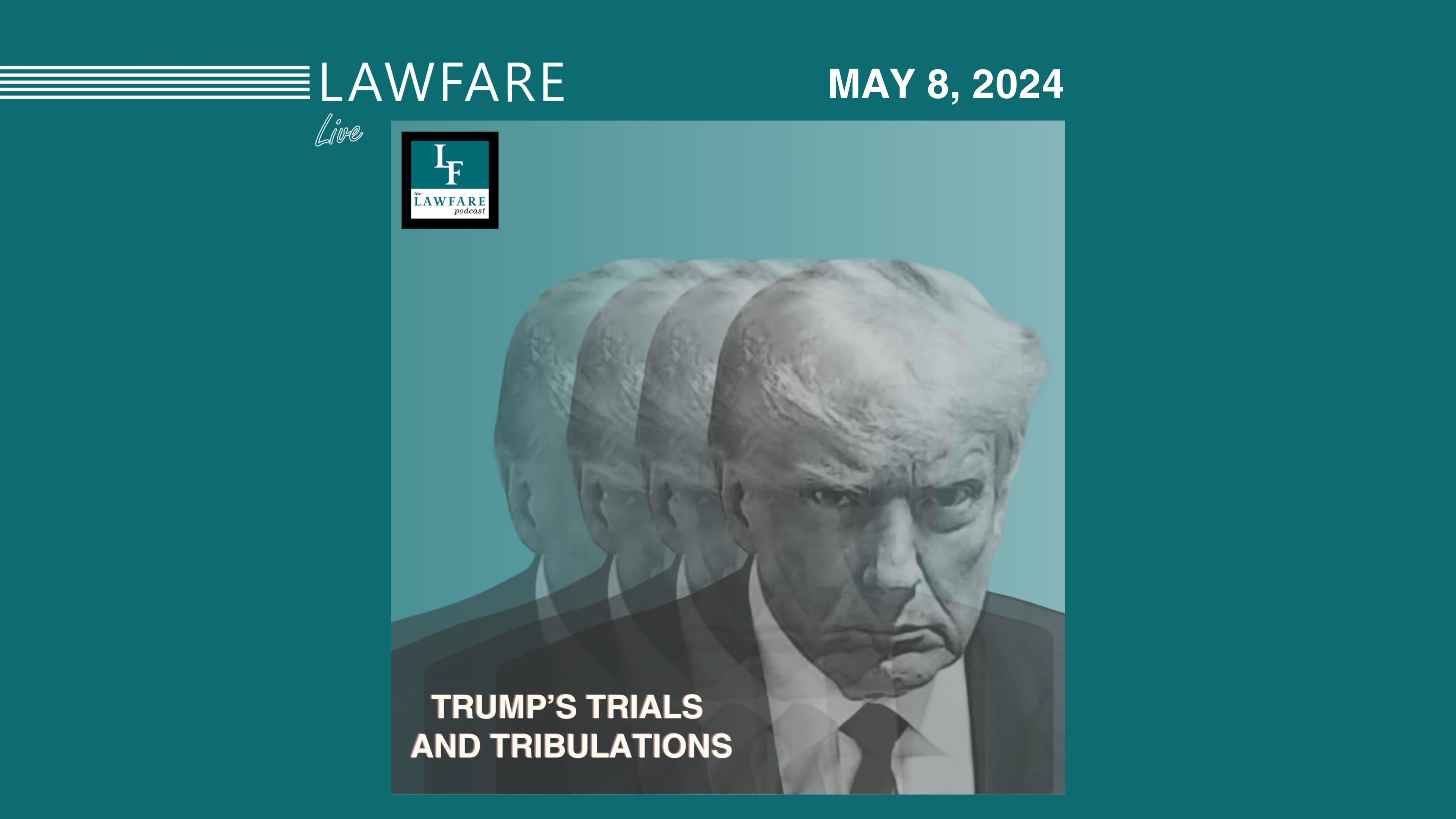DOJ, Trump & the Powers of the American Presidency: A Follow-Up
Last week, Ben published the first in a series of posts analyzing Trump and the Powers of the American Presidency. In that post, he proposed a theory that, despite concerns that a would-be President Trump could potentially abuse his position through the authorities and capabilities of the Intelligence Community, a greater worry should be how he could abuse the authorities and capabilities of the U.S. Department of Justice with its considerable investigative and prosecutorial powers.
Published by The Lawfare Institute
in Cooperation With

Last week, Ben published the first in a series of posts analyzing Trump and the Powers of the American Presidency. In that post, he proposed a theory that, despite concerns that a would-be President Trump could potentially abuse his position through the authorities and capabilities of the Intelligence Community, a greater worry should be how he could abuse the authorities and capabilities of the U.S. Department of Justice with its considerable investigative and prosecutorial powers. (My earlier assessment of Trump’s national security incoherence and incompetence can be found here.)
Having spent over a decade at the Department of Justice, I have two short observations to add:
First, there is a strong argument that the Department could be more susceptible to White House influence due to the far greater number of political appointees in the Department than in the Intelligence Community, as well as the leeway the Attorney General has in allowing for White House coordination.
This is not a road untraveled. In December 2007, Attorney General Mukasey issued a memo tightening up the channels through which communications and coordination could take place between the Department and the White House. Through that memo, which reiterated and updated prior direction, the Attorney General was clear that communications must only occur through the specific channels approved by him and outlined in the memo itself. Notably, however, these “rules” are completely up to the discretion of the Attorney General. They can be tightened, or loosened, at any future Attorney General’s discretion. (Note: I am unaware if Attorney Generals Holder or Lynch changed or updated this process, or whether the Mukasey policy remains in effect.)
Second, one could argue that there are some substantial “checks” on political influence in the Department. In particular, the 93 U.S. Attorneys who lead the local prosecutorial offices nationwide as well as the Assistant Attorney Generals who lead each of the Department’s substantive components (Criminal Division, Civil Division, National Security Division, etc..) must be confirmed by the Senate. Generally speaking, in each U.S. Attorneys’ Office everyone below a U.S. Attorney is a career, civil service prosecutor. But in the offices of the Attorney General, Deputy Attorney General, and front offices of each substantive component, there are a greater number of political appointees. Some of these are high level, some are middle or lower level, in terms of authority (generally categorized and referred to as Schedule C positions). Any given Assistant Attorney General can exercise discretion whether to fill those positions with pure “political” appointments from outside the Department, or, assign career civil service professionals to those positions. Some do a combination of the two. Additional checks include, internally, the Office of Professional Responsibility and Inspector General, and externally, congressional oversight committees.
Further, this is not to suggest that political appointments at the Department, or anywhere else in the Executive Branch for that matter, are inherently “bad.” To the contrary, my experience in government left me with the view that political leadership, when appropriately applied, is absolutely essential in moving the bureaucracy forward through new initiatives and in support of policy goals. But, when we are considering the potential for abuse, the far greater number of political appointments in the Department, as compared to the miniscule number in the Intelligence Community (at leadership levels, only), as well as the wide discretion available to the Attorney General to set the rules of the road for communication and coordination with the White House, does suggest that the Department has the greater potential to be exposed to inappropriate political influence. And when we are considering such potential for abuse in a potential Trump Administration, considering the way he has run his campaign – with a tight circle of loyal insiders, cult of personality, intolerance to criticism and apparent absence of values-based leadership – there is indeed cause for concern.



-(1).png?sfvrsn=4fb01b27_3)
